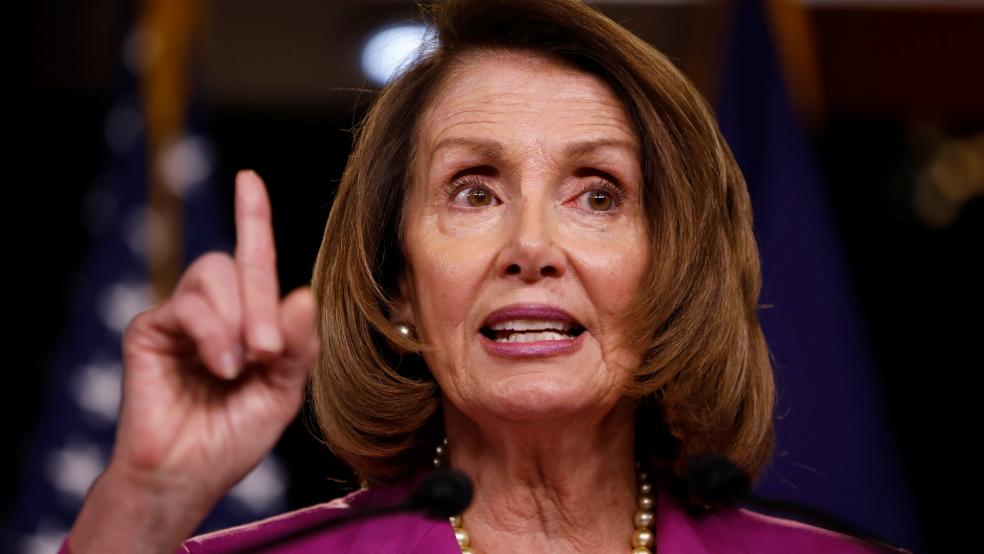House Speaker Nancy Pelosi’s proposal to lower the cost of drugs would empower the federal government to negotiate prices directly with pharmaceutical companies, according to a draft of the plan circulating Tuesday.
A Pelosi spokesperson said that the speaker was still seeking input to the plan, and a senior Democratic aide said the draft was out of date, but it sent shockwaves through Washington (and dinged pharmaceutical shares on Wall Street) nevertheless and is being seen as a sign that Pelosi’s “not messing around” when it comes to drug prices, as Bloomberg’s Max Nisen put it.
Here are some key details of what the draft plan would do:
- Allow the Health and Human Services secretary to negotiate the prices every year of the 250 drugs that cost Americans the most and lack competition.
- Apply the negotiated prices not just to Medicare, but to the private market as well.
- Set maximum prices equal to 120% of an international index price.
- Penalize companies that refuse to negotiate with a fee equal to 75% of gross sales for specific drugs.
- Penalize companies that overcharge consumers with a fee equal to 10 times the difference between the negotiated price and the actual price.
Does the proposal have a chance? Pelosi’s proposal is more aggressive than expected, raising questions about whether it could possibly win bipartisan support. “The plan is sure to please House progressives who have agitated for bold policy on drug prices but, at least as drafted, has almost no chance of winning conservative support,” STAT’s Nicholas Florko and Lev Facher wrote Tuesday. Evercore ISI’s Michael Newshel said that the “more aggressive provisions make the bill’s fate even less realistic for the near-term window for legislative action likely closing by year-end, with any kind of government negotiating provisions highly unlikely to pass the current Senate.”
President Trump is, as always, a wild card. Trump has expressed interest in using an international benchmark of some sort to set prices in the U.S., and The New York Times’ Abby Goodnough said that might be one reason Pelosi included such an approach in her proposal. But even if Trump embraces Pelosi’s plan, it seems unlikely that Republicans in the Senate would be willing to go along in the face of intense resistance from the pharmaceutical industry.
Those conservative lawmakers might, however, take a renewed interest in the more moderate plan introduced by Senators Chuck Grassley and Ron Wyden in July. “I’m trying to tell Senate Republicans that they ought to consider [my bill] a moderate position,” Grassley told the Times Monday.
Ramping up the political pressure. In any event, Pelosi’s proposal appears to be an effort to pressure Republicans to act on drug pricing, while giving “Democrats a potent line of attack on an issue that resonates with voters” should they fail to do so, Bloomberg’s Nisen said. “It might just succeed on both fronts,” Nisen added, since “drug pricing is an area where Republicans are vulnerable.”




